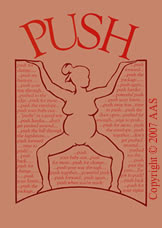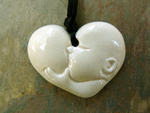Who put the Fox in charge of the Chickens?
Drugs and interventions are used routinely in obstetric care and yet, have never been shown to be safe for the birthing baby. Narcotics used in epidural have never been shown to be safe and the research for decades indicated serious consquences for baby and mother. In spite of that, research continues on BIRTHING babies to compare DIFFERENT narcotics. I have asked Dr. Amy repeatedly for the research to show it is safe to give women the CHOICE to use epidural anesthesia.
MATERNAL CHOICE is not the issue here -- except to point out the blatent misuse of the concept as it is touted by medical caregivers when it is something they want to perpetuate anyways. Women ought not to have the Choice when it is to use drugs shown for decades to NOT be SAFE for the laboring and birthing baby (BRAIN!) Giving women "the choice" allows the fox to slip the blame for misuse of drugs at birth into the chicken's nest.
Foxy doctors, legal guardians and dispensers of controlled substances, narcotics, drugging women at birth. WHAT IS WRONG WITH THIS COUNTRY!? NO ONE should be "under the influence" of narcotics at birth - not the doctor or nurses or father, and certainly not the mother or baby. "Just Say NO!" to drugs and narcotics except for on the most important day of the baby's (brain) life? What crazy making.
We are supposed to believe anything of the medical field when we repeatedly see "wonder drugs" used for adults are dangerous and not adequately researched? We learn daily, as we do in birth, about the poor quality of research that IS done AFTER the wrongful and excessive loss of life.
The following is from www.wddty.co.uk
STATINS: Heart patients get them after op, but doctors don’t know why
It’s extraordinary just how frequently medicine works with myth rather than fact. One example is the use of cholesterol-lowering statin drugs, which have become one of medicine’s holy grails for patients with coronary heart disease.
Heart specialists are convinced that statins are a vital part of patient care, especially after high-risk surgery.
Statins also reduce the risks of developing coronary heart disease among patients at high risk, and the death rate among patients who already have the condition, they believe.
But scratch the surface and you discover that this post-operative medical practice, conducted in every heart unit in the West for decades, is based on just 16 observational studies – which means they’re not even properly regulated trials – and on two small studies.
Researchers from the University of Alberta made the discovery when they sifted through 2,373 references for statins. But these reduced down to just the handful of observational studies that provided any meaningful data.
The truth is, the researchers conclude, we just don’t know if statins are helping heart patients after surgery.
So what to do? Well, it might be an idea to test the theory once and for all and discover if the statins are helping – or possibly harming – the patient.
(Source: British Medical Journal, 2006; 333: 1149-52).
HEART DRUG: Back to the drawing board for Pfizer
Drug giant Pfizer is in a panic after its new generation heart drug – designed to raise ‘good’ HDL cholesterol – was blamed for the deaths of 82 participants in a pre-licensing trial.
Pfizer is desperate to find a replacement for its statin drug Lipitor, which is the world’s best-selling drug with annual revenues of around $10bn. The drug loses its patent protection in 2010, when it becomes open season for other manufacturers to produce ‘me too’ generic copies.
As with all statins, Lipitor lowers the ‘bad’ LDL cholesterol in the blood – but Pfizer researchers reckoned they could reduce heart deaths more dramatically if they instead raised the levels of HDL cholesterol.
The new drug, called torcetrapib, was due to be licensed for approval next year, and was undergoing $800m trials. Researchers running the trial recommended an immediate halt following the deaths of 82 participants who were taking the new drug in combination with Lipitor.
It’s thought that the participants may have died from raised blood pressure, an effect that was reported early on, but one that Pfizer chose to ignore.
Interestingly, 51 participants who were taking only Lipitor also died. This may be as equally surprising to Pfizer as the torcetrapib results. According to the drug company, Lipitor causes a little bloating and gas. Many patients suffer many more serious side effects, including muscle wasting, and according to the latest Pfizer trial, death.
(Source: The Guardian, 5 December 2006).
The Other Side of the Glass
Part One was officially released June 2013 in digital distribution format.
To purchase to to www.theothersideoftheglass.com
If you were a donor and want to download your copy send an email to theothersideoftheglassfilm@gmail.com.
The trailer
Saturday, December 09, 2006
Subscribe to:
Post Comments (Atom)
"Soft is the heart of a child. Do not harden it."
A public awareness reminder that things that happen behind the scenes, out of our sight, aren't always as rosy as we might think them to be. Perhaps its a restaurant cook who accidentally drops your burger
on the floor before placing it on the bun and serving it to you. Here it's an overworked apathetic (pathetic) nurse giving my newborn daughter her first bath.
Please comment and rate this video, so as to insure that it is viewed as widely as possible, perhaps to prevent other such abuse. -- The mother who posted this YouTube. How NOT to wash a baby on YouTube
Are you going to try to tell me that "babies don't remember?" There is no difference to this baby's experience and the imprinting of her nervous system/brain and one that is held and cleaned by the mother or father either at the hospital or at home?
By the way, this is probably NOT the baby's first bath. The nurse is ungloved. Medical staff protocol is that they can't handle a baby ungloved until is has been bathed (scrubbed if you've seen it) because the baby is a BIO-HAZARD -- for them. Never mind that the bio-hazard IS the baby's first line of defense against hospital germs.
Missouri Senator Louden Speaks
Finally, A Birth Film for Fathers
Part One of the "The Other Side of the Glass: Finally, A Birth Film for and about Men" was released June, 2013.
Through presentation of the current research and stories of fathers, the routine use of interventions are questioned. How we protect and support the physiological need of the human newborn attachment sequence is the foundation for creating safe birth wherever birth happens.
Based on knowing that babies are sentient beings and the experience of birth is remembered in the body, mind, and soul, fathers are asked to research for themselves what is best for their partner and baby and to prepare to protect their baby.
The film is designed for midwives, doulas, and couples, particularly fathers to work with their caregivers. Doctors and nurses in the medical environment are asked to "be kind" to the laboring, birthing baby, and newborn. They are called to be accountable for doing what science has been so clear about for decades. The mother-baby relationship is core for life. Doctors and nurses and hospital caregivers and administrators are asked to create protocols that protect the mother-baby relationship.
Men are asked to join together to address the vagaries of the medical system that harm their partner, baby and self in the process of the most defining moments of their lives. Men are asked to begin to challenge the system BEFORE they even conceive babies as there is no way to be assured of being able to protect his loved ones once they are in the medical machine, the war zone, on the conveyor belt -- some of the ways that men describe their journey into fatherhood in the medicine culture.
Donors can email theothersideoftheglassfilm@gmail.com to get a digital copy.
Through presentation of the current research and stories of fathers, the routine use of interventions are questioned. How we protect and support the physiological need of the human newborn attachment sequence is the foundation for creating safe birth wherever birth happens.
Based on knowing that babies are sentient beings and the experience of birth is remembered in the body, mind, and soul, fathers are asked to research for themselves what is best for their partner and baby and to prepare to protect their baby.
The film is designed for midwives, doulas, and couples, particularly fathers to work with their caregivers. Doctors and nurses in the medical environment are asked to "be kind" to the laboring, birthing baby, and newborn. They are called to be accountable for doing what science has been so clear about for decades. The mother-baby relationship is core for life. Doctors and nurses and hospital caregivers and administrators are asked to create protocols that protect the mother-baby relationship.
Men are asked to join together to address the vagaries of the medical system that harm their partner, baby and self in the process of the most defining moments of their lives. Men are asked to begin to challenge the system BEFORE they even conceive babies as there is no way to be assured of being able to protect his loved ones once they are in the medical machine, the war zone, on the conveyor belt -- some of the ways that men describe their journey into fatherhood in the medicine culture.
Donors can email theothersideoftheglassfilm@gmail.com to get a digital copy.
Buy the film at www.theothersideoftheglass.com.
The film focuses on the male baby, his journey from the womb to the world and reveals healing and integrating the mother, father, and baby's wounded birth experience. The film is about the restoring of our families, society, and world through birthing loved, protected, and nurtured males (and females, of course). It's about empowering males to support the females to birth humanity safely, lovingly, and consciously.
Finally, a birth film for fathers.
The film focuses on the male baby, his journey from the womb to the world and reveals healing and integrating the mother, father, and baby's wounded birth experience. The film is about the restoring of our families, society, and world through birthing loved, protected, and nurtured males (and females, of course). It's about empowering males to support the females to birth humanity safely, lovingly, and consciously.
Finally, a birth film for fathers.
What People Are Saying About the FIlm
Well, I finally had a chance to check out the trailer and .. wow! It's nice that they're acknowledging the father has more than just cursory rights (of course mom's rights are rarely acknowledged either) and it's great that they're bringing out the impact of the experience on the newborn, but I'm really impressed that they're not shying away from the political side.
They are rightly calling what happens in every American maternity unit, every day, by its rightful name - abuse. Abuse of the newborn, abuse of the parents and their rights, abuse of the supposedly sacrosanct ethical principal of patient autonomy and the medico-legal doctrine of informed consent, which has been long ago discarded in all but name. I love it!
In the immortal words of the "shrub", "bring it on!" This film needs to be shown and if I can help facilitate or promote it, let me know.
Father in Asheville, NC
Thanks for sharing this. It was very touching to me. I thought of my brother-in-law standing on the other side of the glass when my sister had to have a C-section with her first child because the doctor was missing his golf date. I'll never forget his pacing back and forth and my realizing that he was already a father, even though he hadn't been allowed to be with his son yet.
Margaret, Columbia, MO
They are rightly calling what happens in every American maternity unit, every day, by its rightful name - abuse. Abuse of the newborn, abuse of the parents and their rights, abuse of the supposedly sacrosanct ethical principal of patient autonomy and the medico-legal doctrine of informed consent, which has been long ago discarded in all but name. I love it!
In the immortal words of the "shrub", "bring it on!" This film needs to be shown and if I can help facilitate or promote it, let me know.
Father in Asheville, NC
OMG'ess, I just saw the trailer and am in tears. This is so needed. I watch over and over and over as fathers get swallowed in the fear of hospitals birth practice. I need a tool like this to help fathers see how very vital it is for them to protect their partner and baby. I am torn apart every time I see a father stand back and chew his knuckle while his wife is essentially assaulted or his baby is left to lie there screaming.
Please send me more info!!!!
Carrie Hankins
CD(DONA), CCCE, Aspiring Midwife
720-936-3609
Thanks for sharing this. It was very touching to me. I thought of my brother-in-law standing on the other side of the glass when my sister had to have a C-section with her first child because the doctor was missing his golf date. I'll never forget his pacing back and forth and my realizing that he was already a father, even though he hadn't been allowed to be with his son yet.
Margaret, Columbia, MO
In case you don't find me here
Soon, I'll be back to heavy-duty editing and it will be quiet here again. I keep thinking this blog is winding down, and then it revives. It is so important to me.
I wish I'd kept a blog of my journey with this film this past 10 months. It's been amazing.
I have a new blog address for the film, and will keep a journal of simple reporting of the journey for the rest of the film.
www.theothersideoftheglassthefilm.blogspot.com
I'll be heading east this week to meet with a group of men. I plan to post pictures and clips on the film blog.
I'll keep up here when I can -- when I learn something juicy, outrageous, or inspiring related to making birth safer for the birthing baby.
I wish I'd kept a blog of my journey with this film this past 10 months. It's been amazing.
I have a new blog address for the film, and will keep a journal of simple reporting of the journey for the rest of the film.
www.theothersideoftheglassthefilm.blogspot.com
I'll be heading east this week to meet with a group of men. I plan to post pictures and clips on the film blog.
I'll keep up here when I can -- when I learn something juicy, outrageous, or inspiring related to making birth safer for the birthing baby.
Review of the film
Most of us were born surrounded by people who had no clue about how aware and feeling we were. This trailer triggers a lot of emotions for people if they have not considered the baby's needs and were not considered as a baby. Most of us born in the US were not. The final film will include detailed and profound information about the science-based, cutting-edge therapies for healing birth trauma.
The full film will have the interviews of a wider spectrum of professionals and fathers, and will include a third birth, at home, where the caregivers do a necessary intervention, suctioning, while being conscious of the baby.
The final version will feature OBs, RNs, CNMs, LM, CPM, Doulas, childbirth educators, pre and perinatal psychologists and trauma healing therapists, physiologists, neurologists, speech therapists and lots and lots of fathers -- will hopefully be done in early 2009.
The final version will include the science needed to advocated for delayed cord clamping, and the science that shows when a baby needs to be suctioned and addresses other interventions. Experts in conscious parenting will teach how to be present with a sentient newborn in a conscious, gentle way -- especially when administering life-saving techniques.
The goal is to keep the baby in the mother's arms so that the baby gets all of his or her placental blood and to avoid unnecessary, violating, and abusive touch and interactions. When we do that, whether at home or hospital, with doctor or midwife, the birth is safe for the father. The "trick" for birthing men and women is how to make it happen in the hospital.
The full film will have the interviews of a wider spectrum of professionals and fathers, and will include a third birth, at home, where the caregivers do a necessary intervention, suctioning, while being conscious of the baby.
The final version will feature OBs, RNs, CNMs, LM, CPM, Doulas, childbirth educators, pre and perinatal psychologists and trauma healing therapists, physiologists, neurologists, speech therapists and lots and lots of fathers -- will hopefully be done in early 2009.
The final version will include the science needed to advocated for delayed cord clamping, and the science that shows when a baby needs to be suctioned and addresses other interventions. Experts in conscious parenting will teach how to be present with a sentient newborn in a conscious, gentle way -- especially when administering life-saving techniques.
The goal is to keep the baby in the mother's arms so that the baby gets all of his or her placental blood and to avoid unnecessary, violating, and abusive touch and interactions. When we do that, whether at home or hospital, with doctor or midwife, the birth is safe for the father. The "trick" for birthing men and women is how to make it happen in the hospital.








1 comment:
I love your writing style. I can feel your personality in everything that I read. I think it makes your work very moving. It is amazing how we two have such different styles of writing, yet still manage to get our points across so gracefully. I think our two unique perspectives and styles will come together quite perfectly to achieve our goal.
This certainly does give one a lot to think about. I don't know how people can ignore studies like this. Amy wrote something, a while back, about laughing gas being used. She claims that crosses the placenta, but epidural doesn't...even though studies have shown that babies born after epidurals have more breathing problems. Maybe we can post some studies that prove Amy wrong about the safety of epidurals.
Post a Comment